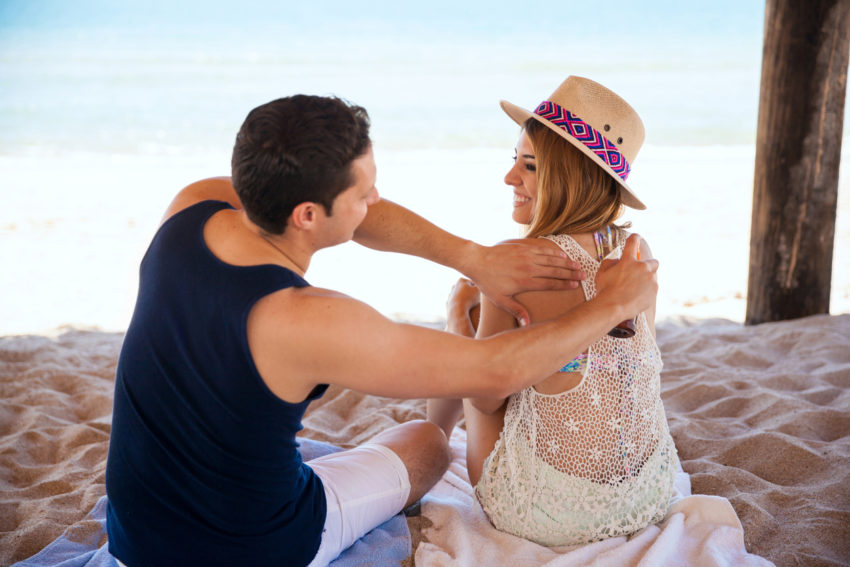
Share On Social!
Many Latinos think they’re safe from sun damage due to their darker skin, even though advanced skin cancer is increasingly common in this group, HealthDay reports.
Latinos thus don’t take steps to protect themselves from the sun’s harmful UV rays, said Dr. Maritza Perez, a dermatologist at the Icahn School of Medicine at Mount Sinai in New York, in an American Academy of Dermatology news release.
Some Latinos even go indoor tanning before spending time in the sun, under the false belief that a “base tan” will protect them, Perez said.
“The belief that Hispanic people don’t have to worry about skin cancer has existed among Latinos for generations,” she said. “They hear it from their parents and grandparents, and then they pass this belief on to their children.”
With summer approaching, these beliefs could be life-threatening.
Skin cancer rates are rising among U.S. Latinos, according to HealthDay. Although, when detected and treated early, melanoma, the deadliest form of skin cancer, has a 98% survival rate.
How to prevent skin cancer
Perez advises all her Latino and other patients to stay out of indoor tanning beds and protect themselves from the sun to avoid exposure to UV rays.
Perez also said it’s vital for Latinos to perform regular self-exams to look for new, changing or suspicious spots on their skin. People with skin of color are prone to skin cancer in unusual areas—like on the palms of the hands and the soles of the feet, under the nails, and inside the mouth.
“Everyone—no matter their skin color—is at risk for skin cancer,” Perez said, “so everyone should learn how to protect themselves from the sun and how to check their skin for suspicious spots.”
“And if you don’t look for changes on your skin, you won’t find them.”
The American Academy of Dermatology directs the a Latino Outreach Program to provide free skin cancer screenings and educate low-income Latino outdoor workers about skin cancer prevention and detection.
Visit the SPOTme website to find a free skin cancer screening in your area.
Find more resources in English and Spanish.
Communities can play a role
Communities can help protect residents from the sun, too.
Dr. Rose Gowen, a Salud America! Salud Hero and a physician-turned-city-leader, wanted to help increase outdoor physical activity in Brownsville, Texas.
She and her team planned and secured grant funding to turn old railroad tracks into the Belden Trail, a one-mile asphalt trail with benches, two shaded pavilions, and 100 native trees along the trail for additional shade.
The trail helps people be physically active and escape the hot Texas sun.
“It’s hardly possible to walk on it without bumping into someone and seeing people walk their dogs, or take a run, or ride a bike, or just a stroll in the morning,” Gowen said.
Explore More:
Healthcare AccessBy The Numbers
25.1
percent
of Latinos remain without health insurance coverage



